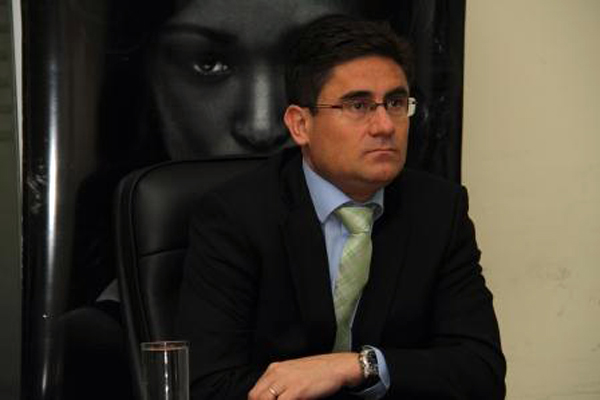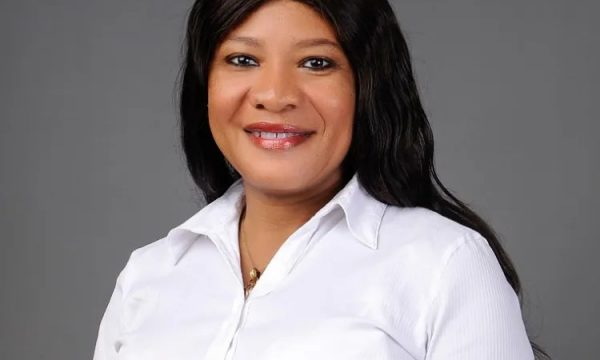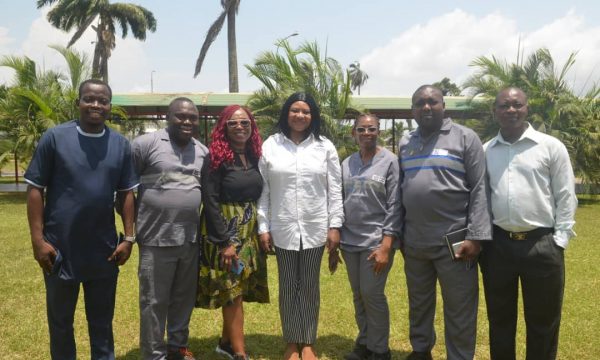Matthew Wilsher assumed office as Chief Executive Officer of Etisalat Nigeria and looks to turn the telco’s growth curve even steeper. Having spearheaded the rollout of many services in countries like Korea and Australia, Wilsher thinks this experience when fused with the work of the team on ground in Nigeria will ensure the brand delivers more values to customers as well as stakeholders. He spoke with media executives on his plans as well as the industry’s challenges in the Nigerian market.
EXPERIENCE WILL DRIVE PROMISE
We have a lot of values to deliver to this market. My predecessor has done quite a lot and I am here to ensure Nigerians continue enjoying world-class telecommunications service. If you look at my background, I have worked in Hong Kong, I have worked in the United Kingdom, Korea, the United Arab Emirates, Malaysia and Australia. These are well advanced markets. Korea for instance is a technologically very advanced place. Companies like Samsung are from Korea and the sophistication of the services there in all areas is very vast. Mobile data is well spread. I remember launching mobile date there in 1999. Hong Kong has advanced services too as well as Malaysia. When I look at Nigeria and the huge opportunity here which everyone talks about, the emergence of more sophisticated services is going to be critical not just in our industry but for many industries. So this experience is something we want to bring into our company here and deliver for the future. That is why we are here. I also look at Australia and feel my experience there would also be critical to delivering Nigeria to the future. Australia is a huge country and the networks there are a million square kilometres. Nigeria is also a huge country, especially in terms of population and I am lucky to have worked in some other big countries. So working with the team here would facilitate not just bringing out more customer-oriented products and services but also manage the economics of the business in a way that enables us to expand everywhere with all our services. But as I say this, I am also aware that it is never in one person. It is a really complex business and while my experience may be important, the job is about the entire team working together. I am happy we are headed in the right direction and given what we are doing at the moment, I think our prospects for the future is quite high. 
OUR NUMBERS, OUR PROSPECTS
We are a fourth entrant to the market place and you really understand the challenges that brings to this type of business when it comes to getting people to accept you when everyone knows you are competing with others who are already well entrenched. But we have been able to carve out a 15percent of the market share, in fact, a little bit above that. Out growth has been significant. We have been able to achieve over $1billion in revenue while our subscriber base is up 20 per cent year on year, and at the present, we have over 19.5 million active subscribers on our network. And that that is unusual in a way and I can say it probably only in Nigeria that you can significant get this type of companies with this kind of growth rate. And it is something to do with the potential the country has; the appetite of Nigerians to communicate, be informed through the internet is quite huge. And it is something the country as well as the company should be proud of. We talk a lot in the company about why we are successful and the answer is that consistently our focus on the customer has been optimal. And this has been at the core of our success. We also talk about things like the quality you get; the experience derivable on Etisalat. If you go around our entire value chain from our network to all our experience centres you find that the whole thing is built around deepening customer experience. We really care about our customer service and how well our customers are treated on service. This message is what Etisalat has talked about for quite a few years and I think it is something we really strived for and the result is that it has marked us out as a role model in the industry. Our relentless pursuit of excellence has been critical to a number of the results we are getting. Recently, we had some awards from the NCC (Nigeria Communications Commission); we had an award for being the Most Customer-centric Network, another for easy access to our customer contact centres. We have also just been certified through the Standards Organisation of Nigeria (SON) for the ISO 9001 Quality Management System.
We were not the only company in Nigeria that had that. There were more than 20 others but it is the pursuit of excellence that underpins why we have not just been a late entrant but we have really grown and we are determined to really be the best. And it comes through in some of the most recent announcements from us. Just a few weeks ago, we announced our transaction with HIS on the sale and lease back of our towers and we were the first to do that and it is interesting that the one who has had the least time in the marketplace is able to deliver a transformational deal such as that. We have had acknowledgment from the NCC as not just having the best data network but having the overall best network in Nigeria. And we are not stopping there. In fact we are right now at the next phase of our investments in that area. We want to get better and raise customer experience in our network higher every day.
We are where we are not because we spend a lot on advertising. In fact, we do spend quite a lot here but the real story lies in the little things we do at all the touchpoints and that are the real secret and which makes it seem as if the brand is youthful, innovative and responsive. I am really happy with the progress we have made over the past years and I am certain that we will continue to grow because I have seen enormous opportunities for us here.
QUALITY AS CRITCAL DRIVER
One of the things we have achieved of recent is that we have been able to acquire the most high usage customers in the market. Back in October, we announced the GEM, a loyalty programme and we were the first to do such a thing and the result has been excellent experiences for our top customers. More recently, we launched another unique product, CliqLite, which targeted the teen and tween market and this opened a whole new area a whole new segment and I am saying this is just the start of a service that goes beyond just data and voice and into wrapping all that up into valuable educational tools and putting them inside a tablet. And we have been able to get this to appeal to parents and to children as well. These kinds of value propositions are what operators should be bringing out to help customers fulfil their ambitions rather than just providing communicating tools.
How we solve issues in the market place regarding the network is critical to our overall business and it all comes back to our understanding that we were a late player and that we have three other very strong players in the marketplace. So the first we had to do was what could make customers on other networks to switch to a new network like our own? Very quickly we realized we could go the way of crashing prices as low as possible. But we also knew that if this was not backed by very good quality then nothing was going to shift. So we for us to be successful, we just decided that we had to occupy two critical areas and the first was to ensure we become toe best quality mobile network in the country. The second space we thought we could occupy was to populate the youth space and ensure we lead there. Saying we are the best quality mobile network may sound like a marketing slogan but in terms of investments, we have been spending over $300million on network expansion, network improvement, bringing in additional and latest technology into the network. For instance, we have recently been investing robustly in base stations upgrade, building and rolling out fibre optic cables across the country.
FUTURE-FORWARD NETWORK MANAGEMENT
Doing this has been tough, especially considering the nature of electricity supply in the country. So for instance, we collocate with other operators but we are always working to ensure minimum downtime on towers where we have our equipment. We regularly monitor the towers and respond to issues of downtime even before anyone else. Monitoring this regularly has helped us also ensure we are future-forward in management network upgrades. So we do not wait until some places are choked before we respond because we are always watching the build-up process and ahead of any traffic congestion on particular base stations and facilities, we ensure an upgrade well ahead time. So that forward planning of understanding the user, his behavior and how that affects the network has helped us stay ahead. As regards mobile broadband service, you may remember our transaction recently that saw us buy a subsidiary of the Dangote Group known as Alheri. We bought our 3G spectrum at least a year after everybody had launched into this space. We are happy to announce that when the deal with Alheri, even internally we were impressed with the output and experience. We raised the bar for what is the mobile broadband experience in Nigeria. For example, we were aware that some members of staff of some competitors companies are using our SIM cards in their iPads. They go to the extent of informally telling us that our data experience is far superior to what their own companies could offer. This because we are using the latest technology; we understand how technology works and developing the people because aside the funds, if you don’t have the people with the right skills, the right exposure, the right technical deployment capacities, you are just as good as someone using outmoded equipment. We train our people in all aspects of the business here in Nigeria and abroad with our vendors and equipment suppliers.
IMPROVING BOTTOMLINE
All what we are doing have been impacting on our bottomline. The revenue growth we have seen in the first half of this year is eloquent testimony to the successes we have been able to record in so short a time. The growth in our subscriber base has ensured we win an increasingly bigger share of the wallets of our high value subscriber segment. We have been able to drive growth in numbers from our topline revenue growth. One critical aspect of how we have been able to get this far is about capital efficiency. It is an extremely capital intensive business we are doing so capital efficiency is very important. For instance, our decision to sell and then lease back our towers was driven by the need to free resources and make every unit of investment more efficient.
Look at the Tower Lease back programme we initiated. As owners of such sites, you pay ground rent for the location, you pay for diesel, you pay for the towers themselves, you pay for security, you pay for the passive management services on the site; On cash basis, you have to buy generators on a two year cycle for the site and if I take all of those together, the cash cost of those are very similar to the cash cost of leasing those towers from IHS once the transaction is close. But what we then get is real economic benefit arising from the fact that we are now reducing our cost of financing because of the proceeds we get and we will not have to make that level of investment in the towers. And there is a supplementary benefit to it which is the fact that HIS is going to invest over $100 million on these sites which would really drive things like hybrid solar capabilities that will reduce dependence on generating sets and diesel. And we will not have to do this but will have to concentrate on other things like microwave equipment among others. When we share masts with other operators through collocation, of course the total cost would be shared by all the parties and that means significant reduction for everyone.
In the Nigerian market, we are looking at the long term. So far, we have invested billions of dollars to grow us this far, but you must realize that in our industry, it take huge investments to be able to get to the top. You have to come out of those investments before reaching a position where you are making profits. We are not profitable yet. But we are already improving profitability. We are able to do that through the focus on capital efficiency. Our costs are under very good control; our scale is growing quite dramatically. As I said earlier, we are up 20 per cent in customer numbers. We could never have done that without keeping our costs flat. We are confident about our future and we feel regulation in the industry has taken positive turns over the last year. They have initiated the adoption of a policy on market dominance which is good. I mean, if you have one competitor in the industry that has all of the profitability, has a value share of 60 per cent, it makes it tough for all the other players to be successful. The NCC is looking at this and it will help everyone.





